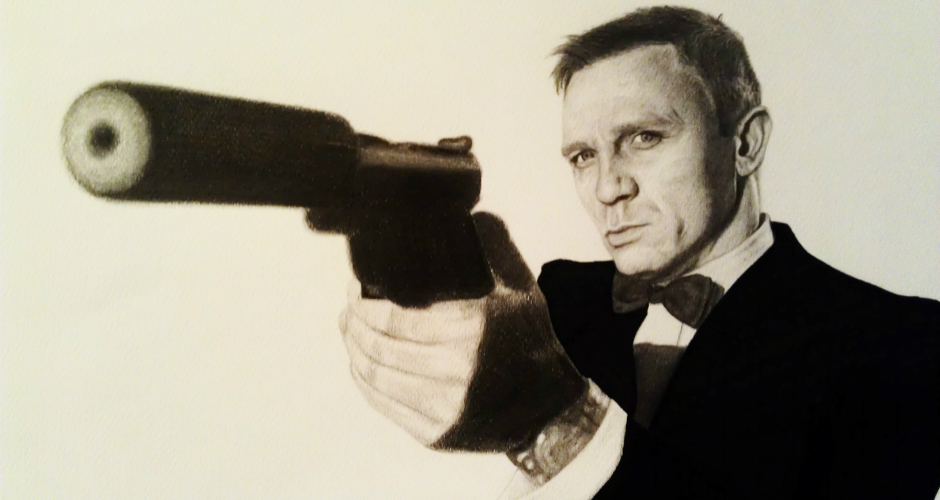 Remember those posters they used to sell? The one’s with the headline “Everything I know about life I learned from . . .”
Remember those posters they used to sell? The one’s with the headline “Everything I know about life I learned from . . .”
Then inserted after the ellipse was something like ” . . . Kindergarten,” or ” . . . my cat.” Well, this morning it occurred to me that there are life lessons in many things, although I rarely see them. Much like these posters tell us, there’s much to be learned in life’s day to day. This morning I took lessons from something I do (almost) every morning, shaving. The following are my less than scholarly observations.
Life Lessons From Shaving:
1. Going against the grain can be tricky, but necessary.
I get so frustrated when these “how to” bloggers and old fashioned barbers try to tell me that to achieve the best shave, you must shave WITH the direction of your hair. Going against the grain, they say, causes irritation, thus impeding the blade from making solid contact with your skin.
So why is it that every time I shave WITH the grain, I spend the day nervously scratching the 12 patches of stubble this perfect shaving technique left behind?
So I draw this conclusion:
Sometimes in life, it is necessary to go against the grain to get the job done. HOWEVER, one will almost invariably have better results by FIRST going with the grain, then take the opposing course of action only when necessary.
2. Timing is everything.
Perhaps at the infantile age of 32 I’m still hovering in the final stages of some tragically prolonged puberty purgatory. This would explain why after one day of growth, my beard still isn’t quite long enough to provide a clean shave. Shaving on the second day gives my face a much better opportunity to offer up a more substancial sacrifice to the beard buddah. Of course, I can’t always wait to shave every other day. This means that sometimes, I just have to deal with it.
So I draw this conclusion:
Probelm solving isn’t always an instant process. Sometimes a problem needs to be allowed to fully expose itself before it can be dealt with correctly. However, that doesn’t change the fact that other times you just have to do what you have to do.
3. A little heat never hurt anyone.
Ever tried to shave when it was cold? Enough said.
So I draw this conclusion:
When life heats up, smile. We often do our best work in this environment.
4. Smoke and mirrors are a part of life.
I decided long ago to shave not before, not after, but during a shower. It’s easier, quicker, and the results are just better. However, this decision led me to a profound consumer realization. There is no such thing as a fogless mirror! It’s a constant battle I face (no pun intended) – trying to focus through the haze of morning on a blurry image in a foggy mirror while I rake a sharp blade across my throat.
So I draw this conclusion:
Very few things are as they seem. So much of what we do, from the mudain and ordinary to the extreme and perilous, requires us to make decisions based on information that is far too often clouded by the smoke and mirrors of the world. Don’t believe me? Watch the news.
5. Some problems never go away, we just get better at dealing with them.
You know what’s funny? Nearly everyday of my adult life I shave. Then I go to work, come home, go to bed, wake up, and . . . dadgummit! I have to shave all over again. This is a viscious cycle that I frankly can’t believe we haven’t found a way to break yet. But alas, we have not. And so . . . I shave. I am, therefore I shave. But I’m a lot better at it than I used to be.
So I draw this FINAL conclusion:
Try as we might, there are some problems we will never “fix.” When it comes to these things, perhaps “fixing” isn’t the goal, but rather what we become in the process.
So . . . did I miss anything? Share your comments and add to the list!



 [readolog_blockquote ]After he said these things, Jesus became visibly upset, and then he told them why. “One of you is going to betray me.” John 13:21[/readolog_blockquote]
[readolog_blockquote ]After he said these things, Jesus became visibly upset, and then he told them why. “One of you is going to betray me.” John 13:21[/readolog_blockquote]



 Remember those posters they used to sell? The one’s with the headline “Everything I know about life I learned from . . .”
Remember those posters they used to sell? The one’s with the headline “Everything I know about life I learned from . . .”